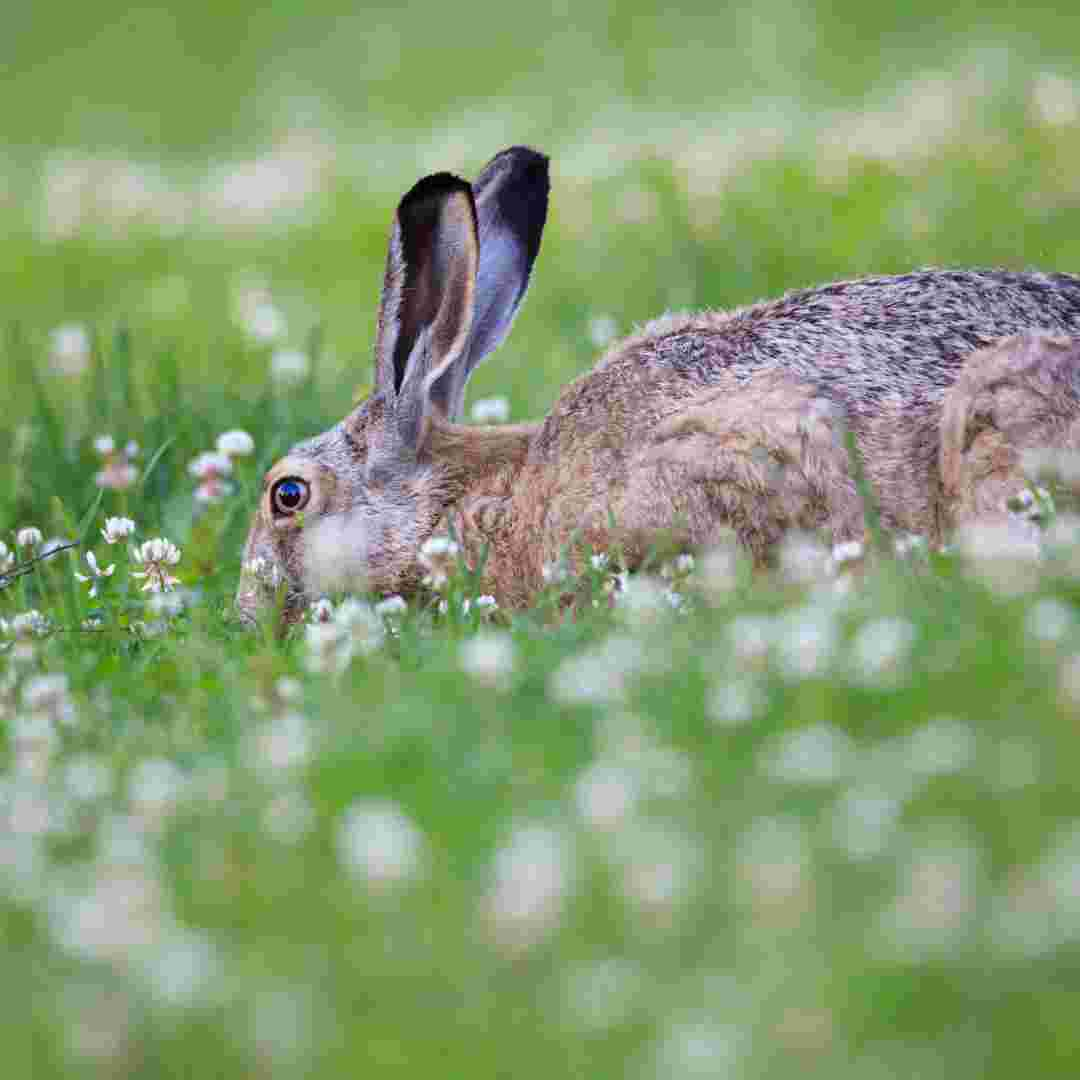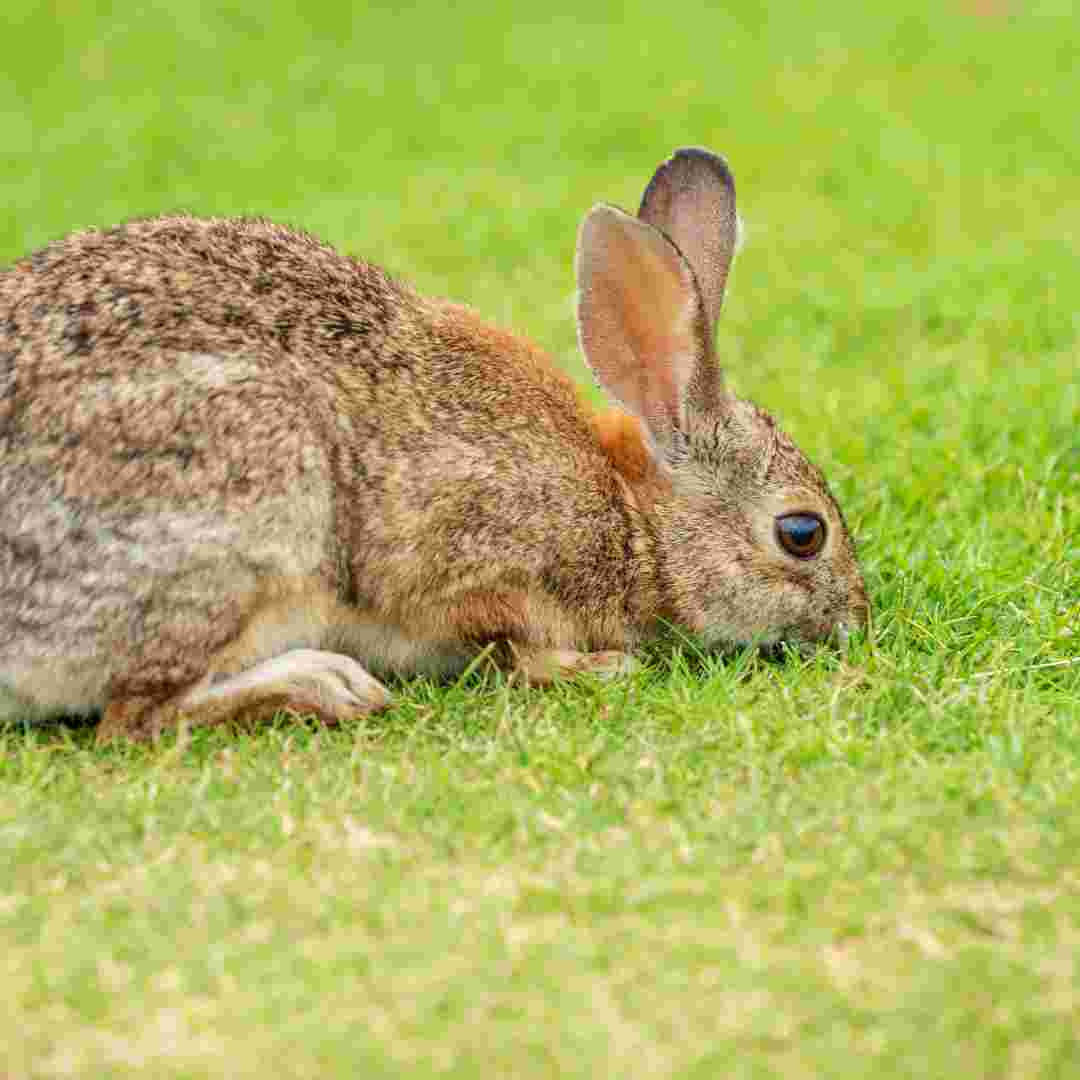Contents Table
Introduction
How to Spot Garden Rabbit Damage
How to Stop Rabbits from Eating Your Plants Naturally
How Rabbit-Proof Fencing Benefits Your Garden
How to Grow Rabbit-Resistant Vegetables
Rabbit Repellents: Pros and Cons for Your Garden
Q&A
Conclusion
Introduction
Rabbits are widespread garden pests that harm plants and landscapes. They eat vegetables, flowers, and bushes and can destroy a garden if left unchecked. Rabbits build burrows and munch grass, damaging lawns. Rabbit control and garden protection are possible using several approaches.
How to Spot Garden Rabbit Damage
Rabbit droppings and eating plants and veggies can damage gardens. To protect your plants, you must identify rabbit damage in your garden.
The most visible evidence of rabbit damage is droppings. These clustered pellets are tiny and spherical. The earth has rabbit hair and tracks.
Rabbits eat vegetables, flowers, and shrubs. Check for nipped leaves, stems and blossoms. Rabbits also dig shallow holes to access plant roots.
Most rabbits are active at night, so check for damage in the morning. If you see rabbit damage, protect your plants.
Fencing, repellents, and traps can discourage rabbits from your garden. Rabbit-resistant plants include lavender, rosemary, and marigolds.
You can keep your garden healthy and productive by spotting rabbit damage and protecting your plants.
How to Stop Rabbits from Eating Your Plants Naturally
1. Grow rabbit-resistant plants like lavender, marigolds, and daffodils. Gardening with them can deter rabbits from eating your plants.
2. Use fencing to keep rabbits out of your garden. Keep the barrier at least two feet high and six inches underground.
3. Use commercial repellents to keep rabbits away from your plants. Rabbits dislike garlic, pepper, and predator urine in these repellents.
4. Use natural predators: Planting shrubs and trees that attract raptors and owls will keep rabbits out of your yard.
5. Remove food sources: Remove rabbit-attracting food sources like fallen fruit and birdseed from your garden.
6. Clean up your garden: Regularly clearing weeds and garbage deters bunnies from devouring your plants.
How Rabbit-Proof Fencing Benefits Your Garden
Protecting your garden against rabbits with rabbit-proof fencing is cost-effective. Rabbits consume plants, flowers, and vegetables and dig up dirt, damaging gardens. Rabbit-proof fencing prevents rabbits from crossing.
The most typical rabbit-proof fencing is galvanised steel or plastic mesh. Strong and easy to construct, this fence is built for durability. The mesh is two to three feet high and difficult for rabbits to climb or jump over. Rabbits cannot fit through the mesh's tiny openings.
Rabbit-proof fencing deters rabbits from entering your garden as well as providing a physical barrier. Rabbits are afraid of new things, so a fence can deter them from entering your garden.
Rabbit-proof fencing protects your lawn cheaply. It is affordable to buy and install and lasts for years with no upkeep.
Rabbit-proof fencing is a cost-effective technique to protect your yard against rabbits. It keeps rabbits out of your garden by blocking their path. It can survive for years with no upkeep, making it a cost-effective plant protection option.
How to Grow Rabbit-Resistant Vegetables
Gardening is fun, but bugs may make it difficult. Rabbits, a common garden pest, can swiftly destroy a vegetable garden. There are vegetables rabbits avoid, so gardeners can protect their crops.
Before growing rabbit-resistant veggies, consider the correct types. Rabbits avoid onions, garlic, potatoes, rhubarb, and artichokes. Asparagus, Brussels sprouts, cauliflower, and kale are also forbidden for rabbits.
Preparing the soil is crucial after choosing the crops. Rabbits like loose, nutrient-rich soil, so make sure it's well-drained and not too fertile. Mulching deters rabbits by making the soil less appealing.
Keep vegetables away from garden margins while planting. Keep veggies away from the perimeter since rabbits will enter a garden if they can. Weeds and trash can provide rabbit cover, so keep the garden clean.
A fence is essential for vegetable protection. A fence should be two feet tall and six inches underground. This will prevent rabbits from eating veggies in the garden.
Gardeners can grow rabbit-resistant veggies using these procedures. With proper preparation and security, gardeners can harvest plenty of veggies without rabbits.
Rabbit Repellents: Pros and Cons for Your Garden
Rabbit repellents are popular for keeping rabbits out of gardens, but they have benefits and cons.
Pros
The ease of usage of repellents is a major benefit. Most repellents are sprays that can be applied to garden plants and soil. They are convenient and cost-effective rabbit protection for plants.
Rabbit repellents can also keep rabbits out of gardens. Many repellents incorporate natural compounds that rabbits dislike due to scent or taste. This may deter them from the garden.
Cons
Cost is a major downside of repellents. Repellent for the entire garden might be expensive, depending on its size.
Repellents might also fail if misused. Incorrect or frequent repellent use may cause rabbits to get used to the smell and stop being deterred.
Additionally, repellents can harm other animals and plants. Repellents with poisonous chemicals can harm birds and plants if misused.
Before employing repellents, weigh the positives and cons. They can keep rabbits out of the garden.

Q&A
Q: What are frequent garden rabbit issues?
A: Rabbits devour plants, dig holes, and leave droppings in gardens.
Q: How can I keep rabbits out my garden?
A: Fencing, repellents, and other methods can keep rabbits out of your garden. Rabbit-resistant plants are available.
What is the best approach to get rid of garden rabbits?
A: Fencing, repellents, and other deterrents are the best ways to control rabbits in your yard. You can trap and move rabbits.
What damage can rabbits do to my garden?
Your garden can be damaged by rabbits devouring plants, digging holes, and droppings. They also spread parasites and diseases.
Q: Are there natural rabbit control methods for my garden?
A: Garden rabbit control is possible with natural methods. Plant rabbit-resistant plants and repel with garlic, chilli pepper, and predator urine.
Conclusion
Rabbits can be a garden pest, but they can be controlled. Gardeners can protect plants against rabbits by fencing, repellents, and other means. Providing alternative food and habitat can also reduce garden rabbits. Gardeners may enjoy their plants without bunnies with a little effort.
